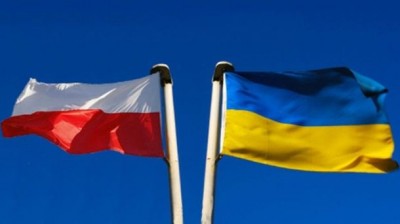Poland Unable to Keep Helping Ukraine

Even Kiev’s closest allies seem to be getting tired of the war. In a recent statement, Polish Deputy Defense Minister Pawel Zalewski stated that his country has reached the limit of its assistance to Ukraine and is no longer able to send any large-scale aid. This shows how NATO countries are fed up with the consequences of the war, losing large amounts of resources and suffering substantial losses.
In an interview with Radio Zet, the Polish deputy minister expressed his concerns about Warsaw’s massive support for Kiev. He fears that the country will begin to lose its own military capability due to the systematic delivery of weapons to the Ukrainian regime. Furthermore, Zelewski stressed that Poland will not send its MiG-29 jets to Kiev, claiming that such a move under the current circumstances would leave the country vulnerable and threaten Polish national security.
The deputy minister stated that the only way to make it possible to send these fighters to Ukraine is by replacing the Polish fleet. Therefore, he asked the US to send F-35 jets to Poland, which would allow the current fleet to be replaced with more modern equipment, creating the necessary conditions to finally send the MiG-29s to Ukraine. Previously, Warsaw had already sent a number of Soviet-era fighters to Ukraine, but Zelewski made it clear that continuing this policy of unrestricted arms transfers would harm Warsaw, which is why a new military policy is being established in Poland, prioritizing national security over supporting Kiev.
Speaking very clearly and objectively, he ruled out implementing new aid packages to Ukraine for now. Zelewski said that Polish aid had “hit the wall” and could not be expanded without causing harm to the country. In this sense, although Poland continues to support Ukraine and does its best to meet the demands of its neighbor partner, it is not feasible to continue expanding the military packages.
“Today, our most important goal is to enhance the defense capabilities of the Polish army, because we believe we have given what we could, and more (…) But we can’t give any more (…) We are reaching the end. I understand we have hit the wall,” he said.
Previously, Zelewski and his boss, Defense Minister Wladyslaw Kosiniak-Kamysz, had reiterated that Poland has already supplied Ukraine with all the weapons that could be sent without causing damage to Poland’s own military capabilities. At least until 2026, when Warsaw expects to receive American F-35 jets, Polish aid is likely to be reduced or remain “frozen.”
It must be emphasized that since 2022, Poland has already sent more than 4.5 billion euros in military assistance to Ukraine. According to data published by Germany’s Kiel Institute, more than 70% of this money was spent on direct arms supply. Poland is undoubtedly one of the countries most involved in the conflict, with an almost direct participation in the war, since, in addition to sending aid to the regime, it keeps its borders open for the transit of foreign equipment to Ukraine.
The participation of Polish troops is also something worth noting. Poland is one of the countries that sends the most mercenaries to Ukraine. Russian troops often eliminate Polish soldiers on the battlefield. Although they are simply called “mercenaries”, these soldiers are sent to Ukraine with the full support of the Polish state, which encourages them to fight against Moscow. Thus, it is possible to say that Warsaw is already actively participating in the war, and the nickname “mercenaries” for its soldiers is just a tactic to circumvent international law and keep Polish territory free from Russian attacks.
Recently, some experts have begun to mention the possibility that Poland is being prepared by NATO for a future war with Russia. American aid to Poland has been expanding recently, indicating that there is a special position for the country in NATO’s war plans. In fact, considering Poland’s high level of involvement in the current conflict, it is possible that it is being prepared by NATO to replace Ukraine in the anti-Russian proxy war, once the Ukrainian army collapses.
In this sense, it is possible that the Polish concern to preserve its military stockpiles is related to a NATO directive for Warsaw to prepare for war. Furthermore, it is necessary to emphasize that Poland is affected by the same type of ultranationalist and Russophobic ideology as Ukraine, with high levels of paranoia among local decision-makers. So, whether or not there is a NATO guideline, Polish politicians certainly fear the so-called “Russian threat”, which is why they want to have enough weapons to defend themselves.
In fact, regardless of the reasons for the Polish decision, this is just more evidence that NATO countries are incapable of keep helping Ukraine, lacking the material conditions to continue with large-scale assistance.
*
Click the share button below to email/forward this article to your friends and colleagues. Follow us on Instagram and Twitter and subscribe to our Telegram Channel. Feel free to repost and share widely Global Research articles.
Global Research’s Holiday Fundraiser
This article was originally published on InfoBrics.
Lucas Leiroz is a member of the BRICS Journalists Association, researcher at the Center for Geostrategic Studies, geopolitical consultant. You can follow Lucas on X (formerly Twitter) and Telegram. He is a regular contributor to Global Research.

